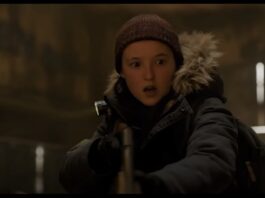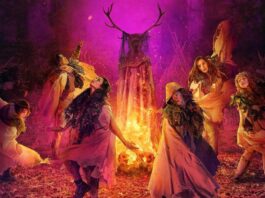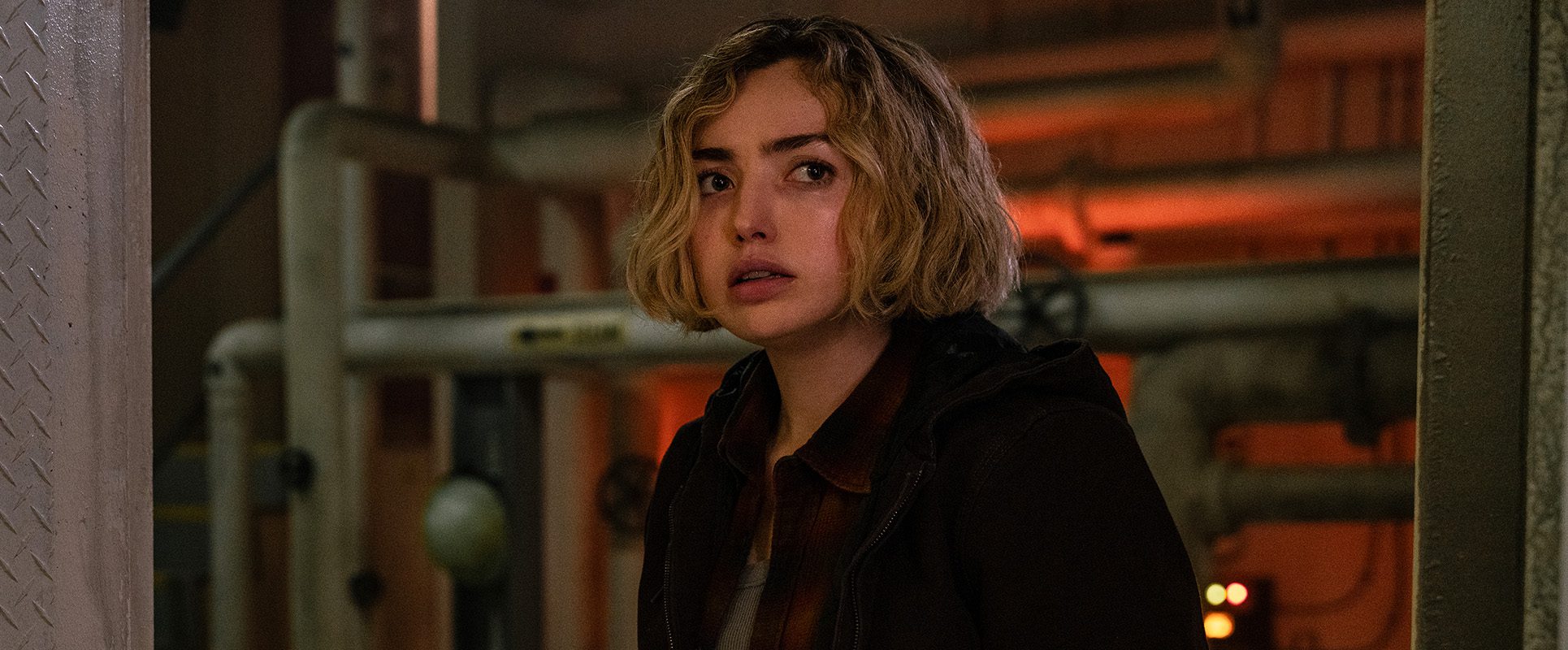Shock deaths. Blood splatters. A willingness to “go there.” Narrative sadism. Currently led by its flagship Game of Thrones, dark and Edgy™ media has been dominant on our screens for the past several years. We can easily blame 2012 for certain apocalyptic-centric films. Yet even when the Mayan calendar didn’t doom us all, the trend continued to the point where there almost seems to be no room for shows today that don’t at least pay lip-service to the concept at the beginning. And of course, there’s clearly a directive for media makers given the past two Emmy Awards.
However, Westworld may actually break the wheel here. It would be great to say it’s because HBO’s newest show, and heir apparent, is so refreshing that it offers a way to engage in darker tropes to a positive effect—like Jessica Jones managed. But no, not at all. Westworld revels in its voyeurism and violence to such a degree, it exposes just how absolutely tired, and ultimately shallow this kind of storytelling is.

This was evident from the show’s pilot episode. It gave us a fairly typical, yet intriguing enough sci-fi premise about increasingly sentient robots (hosts) serving as props in a “wild west” LARP for rich individuals, and thus a platform to debate the ensuing ethical and philosophical issues (consent, namely, as well as “what is humanity?”). Not exactly ground-breaking in a post-Dollhouse world, but fine, just fine.
However, it was served up with heaps and heaps of violence, including rape, because, as the creator Lisa Joy said, “This is an examination of human nature from within and also from without”. Or at least, this is the justification most commonly tossed around. Then there’s also the justification that it’s a “wild west” setting, so of course there’s going to be this kind of shit going on.

At the time I thought this was a clever way for Westworld to have its cake and eat it too; the setting could have been futuristic egalitarian pirates or something, but by putting it in a “historical” time-period, dated tropes and troubling conflicts could be excused away with claims of “accuracy.” However, there did at least seem to be some understanding on the show’s part that depiction isn’t the same as endorsement, at least enough to not write it off immediately.
Well, we’re more than halfway through this season now, getting news that a Season 2 was green-lit. And just as with the pilot, the violence is excessive to the point of distraction. The female body count is piling up, host and human alike, and as Matt pointed out in his most recent review, the brutality of this violence against women and the willingness on the part of the directors to “go there” and depict it in its entirety is not a comfortable pattern by any stretch of the imagination.

In fact, for my own viewing experience, this is an actively uncomfortable show to watch. It’s not just that there’s gore, but that the audience is invited to linger on all of it. How many scenes have we been treated to of scientists slowly slicing into a host with the cutting sound-effects oh-so perfectly amplified? We get it; they’re very life-like. How many times do we need to see some group of random hosts get riddled with bullets on the Man in Black or William’s Quests of Little Pay-off?
And each episode seems to be pushing the envelope further and further, culminating with last Sunday’s crapfest, featuring multiple bludgeoned women.
Jonathan Nolan: That’s not the point we want to make, that it’s OK if they’re a robot.
Interviewer: Yes, but …
Jonathan Nolan: It’s not OK, but that is one of the questions that the show is asking. In the world of our show, they have created a space in which people can go and behave however they want with no consequences. That, of course, is exactly “Grand Theft Auto.” It’s more sophisticated. The NPC’s AI is more sophisticated. We’re asking this question . . . at what point does this become problematic? At what point does this become abhorrent? You don’t feel any guilt. —Nolan & Joy’s Interview with Salon
In fairness, it might be an interesting conversation to have, but it’s a bit wanting in its takeaway. What are we, as viewers, getting out of this? Supposedly an exploration of human nature from within and without, but how is Westworld actually offering this any more than another show? Because we have an old dude with a British accent talking about sentience?
I think the main issue I’m having is that “at what point does it become problematic” is a question with diminishing returns. It’s not that it’s unengaging to think about, but there’s only so many times it can be raised before it becomes washed out in this sea of “it’s all so fucked up.” I can’t bring myself to care enough to tease out the difference in ethical violations between BernardBot and Teresa when the whole park—the whole premise—is just piling on and on with the problems.
Is it ethical that there’s robot Native Americans programmed to kill the robot “Confederados”, and that these hosts are just slaughtering each other in the background all the time in case some human visitor comes? At this point, I’m just thinking more about how economically stupid that is. Plus very basic ethical decisions, such as “should we make the robots have pain receptors?” (no really, why would anyone do that?) were made entirely off-screen, so we’re apparently supposed to accept a flawed premise from the start.
The thing is, merely saying that something is an exploration of human nature doesn’t make it instantly meaningful.


And no, it really doesn’t help that in the past two episodes, the two human women who were actually in positions to challenge the utter bullshit of all of this were attacked, with one outright murdered before our eyes. I’m sure Elsie survived somehow, but it’s really just the icing on a very nauseating cake. Maeve is the only bright spot, because even Dolores’s story seems to be building to not much more than “oh that’s why the Man in Black said you two had so much history together before raping you in the pilot” (if you buy the multiple timelines).
That’s the other thing: I’m finding myself completely unable to engage with any sort of theory-crafting surrounding Westworld because its entire premise exhausts me. Bernarnold? Sure, whatever. You could also write a thesis on how Teddy is secretly Simon Quarterman and I’d find it equally [not] intriguing. I can’t explain why I don’t care at all, because I’m someone who wasted days of her life in Lost forums debating the meaning of the statue. It’s also not that the shocks are unearned, like a certain other HBO show. But contextualized by this show’s continual need to “go there”, my willingness to think too deeply about it, or even think about it at all in between episodes, is basically non-existent.
It was suggested by a commenter that Westorld might just not be for me, especially when unlike Matt, I don’t have any inherent trust in Jonathan Nolan and Lisa Joy; that’s something that needs to be earned for me, particularly for any show on this network. And I can accept that, except for the fact that it really should be. I love sci-fi, I love knotty theories, and I love corporate dramas (which yes, is a large component of this, especially now that Ford mentioned his games with The Board). The only thing that’s losing me is the commitment to the dark and edgy, but it is such a striking and thorough commitment that it overshadows everything else.

Perhaps in a pre-Game of Thrones world I might have been able to stomach this. Perhaps if we hadn’t been treated to a murderous, desaturated Superman, or a mile-high lesbian body count this spring, it’d be something I could dismiss. But it just feels so damn stale now, and I don’t think I’m the only one who can be hitting this breaking point.
Westworld is quite popular, and it will have at least another season. But it’s also a show born of the dark and edgy, with its entire point seeming to ask whether its existence is justified on-screen. When does it become problematic? When does it become too much? Unless Nolan and Joy can come up with a meaningful takeaway soon, the answers aren’t looking too promising.
Images courtesy of HBO




